Published
- 05:00 am
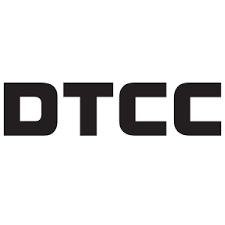
The Depository Trust & Clearing Corporation (DTCC), the premier post-trade market infrastructure for the global financial services industry, today announced that Timothy Lind, former Global Head of Financial Regulatory Solutions at Thomson Reuters, has joined the firm as Managing Director of DTCC Data Services. Mr. Lind will be responsible for guiding the firm’s data businesses, including services that leverage the vast amounts of data derived from DTCC’s global processing platforms whileensuring on-going alignment with all risk management and regulatory requirements.
Mr. Lind is an industry veteran with deep expertise in global capital markets infrastructure, including the deployment of technology for operational efficiency, data governance, transaction automation, regulatory compliance and risk management. Prior to DTCC, he held roles at Thomson Reuters, where he was responsible for developing and overseeing the growth of solutions to meet regulatory compliance data challenges faced by market participants, and served as a consultant at RTech Advisors. Before that, Mr. Lind worked at Omgeo (now a part of DTCC) as its Chief Strategy Officer. His previous experience includes positions at GoldenSource Corporation, CEB TowerGroup, SWIFT and Brown Brothers Harriman. He has also worked extensively with industry associations promoting data standards in the financial services industry.
Commenting on the appointment, Tim Keady, Managing Director and Head of DTCC Solutions, said, “Tim brings to DTCC more than 25 years of domestic and international experience in the capital markets, including a rich background in data offerings. We look forward to Tim’s contributions, working with our community to continue advancing our data strategy with an emphasis on reducing risk, enhancing data transparency and maximizing value for our clients.”
Tim Lind said, “I’m excited to partner with my colleagues and the industry to identify innovative ways to increase the value of DTCC’s data offerings to enable compliance with regulatory requirements, optimize capital use and more effectively manage risk.”
Related News
- 03:00 am

Financial technology investment platform BnkToTheFuture has raised an initial $30 million for its tokenized equity market and due diligence platform in the first three days of BnkToTheFuture’s token private pre-sale open solely to institutional investors. BnkToTheFuture offers the largest online investment platform for investing in the equity of FinTech, Bitcoin, and Blockchain companies as well as Initial Coin Offerings (ICOs) that have passed a stringent due-diligence and compliance process.
Already popular as an online investment platform with 48,000 professional and accredited investors with over $260 million invested in the funding rounds of FinTech, Bitcoin and blockchain deals listed on its platform including Kraken, BitFinex, BitStamp, and Shape Shift, BnkToTheFuture will now incorporate blockchain technology with the aim of allowing for the trading of security tokens in 2018 and will issue its BnkToTheFuture token to support deal flow analysis, due diligence, and investor relations on the platform.
BnkToTheFuture’s public token sale, capped at $3 million, will launch on February 6, 2018, limited to those that wish to purchase $1,000 worth of tokens to utilise its membership and $5m, capped at $10,000, has been allocated exclusively for users of BnkToTheFuture.com. Each person pays the same price for the BnkToTheFuture token in all three phases of the Token Sale: private pre-sale for institutional investors, pre-sale for qualified investors from the BnkToTheFuture platform, and the public sale.
In today’s booming global ICO sector, investors are increasingly demanding a more transparent marketplace that allows flexibility in trading existing investments and gaining early access to new deals, all while maintaining many of the protections provided by traditional equity investments. The recent uptick in international regulator scrutiny and SEC rulings will inevitably lead to the majority of offerings being viewed as securities. BnktotheFuture solves such issues for both issuers and investors due to a combination of having attained a suite of securities business registrations and building a compliance-driven platform. In addition, the platform aims to offer real-time access, pricing, liquidity, and a transparent marketplace for trading private equity.
“The ICO boom proved that there is a huge appetite to allocate funds to Blockchain technology when a liquid secondary market exists,” said Simon Dixon, CEO of BnkToTheFuture. “If they had the choice I think most would have preferred to trade shares in the company rather than tokens with no shareholder rights. With the current regulatory landscape, we feel the time is right to bring ICO style trading and liquidity to the private equity markets all through a compliance-driven platform”
Among other features, BnkToTheFuture’s token will grant existing users access to the platform’s multi-tiered membership for qualifying investors to access priority deals and also will act as a reward to other token holders who conduct, on behalf of the platform and community, due diligence on prospective deals, such as sourcing prospects or managing investor relations by giving status updates on a listed company’s progress.
Related News
- 06:00 am

Avaya Holdings Corp. (NYSE:AVYA), a leading global business communications company, will ring the Opening Bell® on January 17th to celebrate the company’s listing on the New York Stock Exchange (NYSE). Avaya embarks on a new journey following a successful balance sheet restructuring that shed billions of dollars in debt, freeing up $300 million in cash flows for investment in technology innovation and growth.
“On behalf of our entire team, our customers and partners, it is an honour to mark this first day of trading on the NYSE for the new Avaya, which is more focused than ever on leading the industry’s digital transformation,” said Jim Chirico, president and chief executive officer of Avaya. “Building upon our history of innovation and expertise in deploying globally scalable solutions, Avaya sits today at the strategic nexus of connectivity for the enterprise—with more than 130,000 customers in 220,000 locations worldwide, 90% plus of the Fortune 100, and more than 100 million users. ”
Chirico added, “Avaya is also the largest pure play Unified Communications and Contact Centre provider in the cloud. We have unparalleled opportunities ahead of us. For example, only about 10 percent of our contact centre customers have migrated to the cloud. We are passionate about providing the flexibility, open architectures, and deployment options that our customers need to exceed expectations, move ahead of the competition, and quickly take advantage of such new technologies as artificial intelligence, blockchain and the Internet of Things.”
The NYSE will stream the ringing of the Opening Bell® on its website: http://livestream.com/NYSE, which is scheduled for 9:30 a.m. ET. A video of the bell-ringing will also be archived on that same page after the livestream.
In addition to ringing the Opening Bell, Avaya will begin trading on the NYSE as of the market open on January 17, 2018, under the ticker symbol AVYA.
Related News
- 03:00 am

On Saturday 13 January, the EU’s Payment Services Directive 2 will finally enter into force across the European Union. The updated version of the original 2009 Directive aims to improve current rules and bring the European payments landscape into the digital era. Changing the game for European retail banking, PSD2 enables bank customers, both consumers and businesses, to use new and innovative third-party providers to manage their finances, bans merchants from passing through the costs of payments to their customers (surcharging) and puts in place stronger protections for customers when shopping online.
Opening the market to third-party payment providers
One of the key, and most controversial, changes introduced under the PSD2 is that banks will be obliged to provide licensed third-party payment service providers (PSPs) with access to their customers’ account through open APIs. Such PSPs may be any company holding a banking license and offering financial services. As such, in future, while your bank will continue to hold your current bank account, you may be using third-party payment services offered by FinTechs or global tech companies to manage your spending.
While PSD2 will come into effect on 13 January, regulatory technical standards on the technicalities around PSPs’ access to bank accounts are expected to only enter into force by September 2019. In the meantime, the industry is actively developing technical standards on the integration of Payment Initiation Services (PIS) through initiatives such as at the Euro Retail Payments Board or the Berlin Group.
Surcharge ban
In line with the EU’s Regulation on Multilateral Interchange Fees (MIF), which entered into force in mid-2016, PSD2, in most cases, bans merchants from passing through the costs of accepting electronic payments to their customers.
This surcharge ban aims to protect consumers by prohibiting merchants from charging consumers additional fees for making payments by card, direct debit or credit transfer. For example, merchants, including ticketing, travel and food delivery websites, will no longer be allowed to charge consumers additional fees for paying by debit or credit card. To help you navigate the surcharge ban, the following are the main elements to bear in mind. The ban applies:
- to online B2C transactions (but not B2B transactions);
- to payments made by consumers using debit and credit card, direct debit and credit transfer using a 4-Party scheme (Mastercard, Visa, Giro or Bancontact); and
- where the PSPs of both the consumer (i.e., the consumer’s bank) and the merchant are located in the EEA
For payment methods not covered by the surcharge ban, i.e. 3-Party schemes such as Amex or Diners Club or certain non-card payment methods, any charges applied by the merchant to the consumer cannot exceed the direct costs incurred by the merchant for accepting that payment method. For platforms or marketplaces, the surcharge ban will not impact the platform or application fee charged to consumers, provided that these fees are not differentiated by payment method.
The PSD2’s ban on surcharge fees follows the MIF Regulation’s significant capping of interchange fees to 0.2% for consumer debit cards and 0.3% for consumer credit cards.
Strong Customer Authentication
With regard to strengthening customer protections when shopping online, the PSD2 also puts in place a requirement for strong customer authentication of online payments. While the regulatory technical
standards are still to be approved by EU legislators, it foresees that, barring a number of exemptions, customers will have to undergo strong customer authentication when buying goods and/or services online.
Exemptions to the rule will be:
- when the customer registers the online merchant as a ‘trusted beneficiary’ with his or her bank;
- recurring transactions to the same beneficiary and with the same amount;
- low-value transactions less than EUR30 (certain conditions continue to apply);
- secure corporate payments initiated through dedicated payment processes and protocols; and
- transaction risk analysis
In order for online merchants to be allowed to apply transactions risk analysis, both the customer and merchant’s PSP need to fall within certain required reference fraud rates for certain monetary values up to EUR500. Following their expected approval in early 2018, the rules on their applicability will come into force in September 2019.
Related News

Arsalan Danish
Communications Specialist at Mastercard
The way we make money and spend money is changing. see more
- 05:00 am
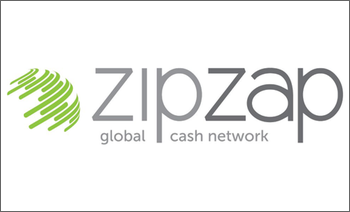
The current remittance market is fragmented with Western Union and the three other largest MTOs accounting for approximately 25 percent of global remittance volumes. The remaining 75 percent of remittance transactions are processed by thousands of small to mid-size MTOs which are hampered in their ability to scale due to technology constraints including resources and latency, illiquidity, and banks’ increasing reluctance to service smaller MTOs due to compliance overheads. This lack of competition and inability to challenge the large MTOs is directly responsible for the cost of remittances remaining high at around eight percent.
Small to mid-size MTOs need to move into blockchain or face obsolescence.
ZED’s proprietary blockchain technology will address these imbalances and inequities in the Money Transfer Operator (MTO) market. Executed over Stellar to a network of sending and receiving MTOs in multiple worldwide corridors, the ZED platform offers a single point of integration for MTOs for the sending and receiving of remittances including a wallet, web app, mobile app, facility to exchange multiple currency pairs, and a robust back office with suite of analytics and reporting tools for compliance and monitoring.
Related News
- 07:00 am

Financial technology investment platform BnkToTheFuture (www.bnktothefuture.com) has raised an initial $30 million for its tokenized equity market and due diligence platform in the first three days of BnkToTheFuture’s token private pre-sale open solely to institutional investors. BnkToTheFuture offers the largest online investment platform for investing in the equity of FinTech, Bitcoin, and Blockchain companies as well as Initial Coin Offerings (ICOs) that have passed a stringent due-diligence and compliance process.
Already popular as an online investment platform with 48,000 professional and accredited investors with over $260 million invested in the funding rounds of FinTech, Bitcoin and blockchain deals listed on its platform including Kraken, BitFinex, BitStamp, and Shape Shift, BnkToTheFuture will now incorporate blockchain technology with the aim of allowing for the trading of security tokens in 2018 and will issue its BnkToTheFuture token to support deal flow analysis, due diligence, and investor relations on the platform.
BnkToTheFuture’s public token sale, capped at $3 million, will launch on February 6, 2018, limited to those that wish to purchase $1,000 worth of tokens to utilise its membership and $5m, capped at $10,000, has been allocated exclusively for users of BnkToTheFuture.com. Each person pays the same price for the BnkToTheFuture token in all three phases of the Token Sale: private pre-sale for institutional investors, pre-sale for qualified investors from the BnkToTheFuture platform, and the public sale.
In today’s booming global ICO sector, investors are increasingly demanding a more transparent marketplace that allows flexibility in trading existing investments and gaining early access to new deals, all while maintaining many of the protections provided by traditional equity investments. The recent uptick in international regulator scrutiny and SEC rulings will inevitably lead to the majority of offerings being viewed as securities. BnktotheFuture solves such issues for both issuers and investors due to a combination of having attained a suite of securities business registrations and building a compliance-driven platform. In addition, the platform aims to offer real-time access, pricing, liquidity, and a transparent marketplace for trading private equity.
“The ICO boom proved that there is a huge appetite to allocate funds to Blockchain technology when a liquid secondary market exists,” said Simon Dixon, CEO of BnkToTheFuture. “If they had the choice I think most would have preferred to trade shares in the company rather than tokens with no shareholder rights. With the current regulatory landscape, we feel the time is right to bring ICO style trading and liquidity to the private equity markets all through a compliance-driven platform”
Among other features, BnkToTheFuture’s token will grant existing users access to the platform’s multi-tiered membership for qualifying investors to access priority deals and also will act as a reward to other token holders who conduct, on behalf of the platform and community, due diligence on prospective deals, such as sourcing prospects or managing investor relations by giving status updates on a listed company’s progress.
ABOUT BNK TO THE FUTURE
BnkToTheFuture is the largest global online investment platform focused exclusively on fintech, bitcoin and blockchain ventures. The platform is compliance-driven with international financial regulations and over $260 million has been invested in deals listed on its platform including BitFinex, BitStamp, Kraken, ShapeShift and over 100 others. For more information, visit https://bnktothefuture.com/.
MEDIA CONTACT: Transform Group, bnktothefuture@transform.pr
DISCLAIMER
Nothing herein constitutes an offer to sell, or the solicitation of an offer to buy, any tokens. You should read carefully and understand fully the BnkToTheFuture White Paper, including any updates. Every potential token purchaser will be required to undergo an on-boarding process that includes identity verification and certain other documentation, which you should read carefully and understand fully because you will be legally bound. Please make sure to consult with appropriate advisors and others.
All product and company names herein may be trademarks of their registered owners.
Related News
- 02:00 am
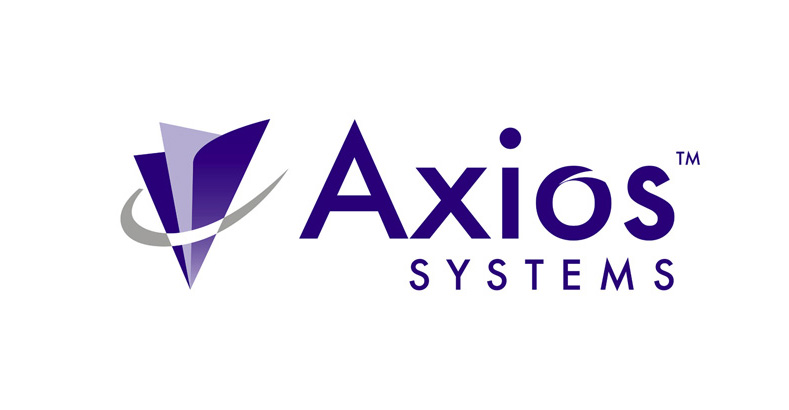
Axios Systems, a pioneer of “Fit for Purpose” IT Service Management (ITSM) and IT Operations Management (ITOM) cloud solutions, is delighted to award its Customer of the Year award to US-based financial institution, Glacier Bancorp.
Based in Kalispell, Montana, Glacier Bancorp provide commercial banking services in 91 communities and 146 banking offices across Montana, Idaho, Colorado, Utah, Washington, Wyoming and Arizona. They provide a wide variety of services including mortgage origination services, retail brokerage services and commercial, consumer and real estate loans.
A customer since 2012, Glacier Bancorp received the Customer of the Year award due to their commitment to Axios Systems as a partner, as well as their strategic use of the comprehensive suite of services provided by assyst, the leading software solution from Axios.
In collaboration with the Axios team, Glacier Bancorp has made a number of worthwhile improvements to their configuration of assyst in 2017. From simpler configurations, like enablingassyst’s recently-released, ITIL-aligned priority calculator, to loftier ambitions, including tuning the framework of their assyst CMDB towards enabling service-oriented event reporting, Glacier IT is vigilant in their pursuit of the ways that assyst can help add value and better align with the business.
Chris Torma, Change Manager at Glacier Bancorp said: “Glacier Bancorp IT is committed to bringing further value to our business through ongoing efforts to make processes more effective. Asassyst customers, partnership with Axios plays a vital role in the achievement of our IT Service Management goals.”
Markos Symeonides, Regional CEO at Axios Systems said: “Glacier Bancorp has redefined what a true business partnership is. Its dedication to driving efficiencies within its own organization and loyalty to the Axios brand has been second-to-none. I’m delighted to be able to award them the Customer of the Year accolade.”
Related News
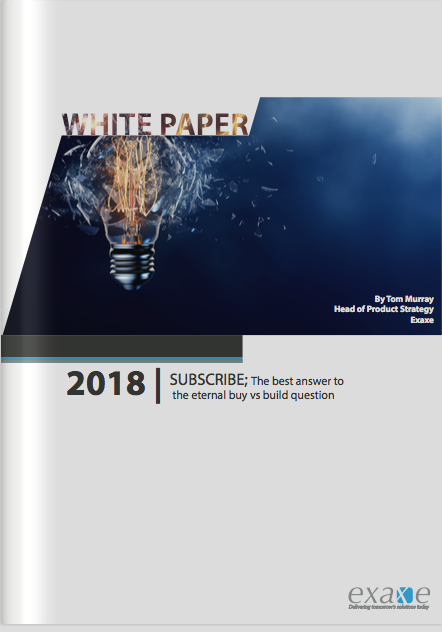
- White Papers
- 16.01.2018 12:28 pm
One of the primary reasons that inclines rms toward a self-build approach is that those within the organisation know the business best, and therefore the resulting solution should cater for the exact needs of the organisation and how it currently approaches its business. This argument ignores key factors:
Please fill up these fields in order to read the publication.
Other White Papers
- 02:00 am
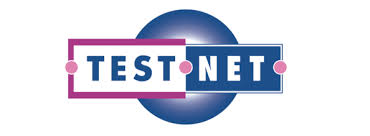
Testnet is the early version of EON, flexible new generation blockchain created by Exscudo. On January, 25 EON testnet will be updated, and new features will be introduced, including the colored coins functionality.
What are these colored coins?
Colored coins are tokens that are marked to represent another assets. They do not have their own real value. In Exscudo ecosystem colored coins are needed to create equivalents of existing crypto or fiat currencies and assets. This way users can work with different currencies with the same rules.
How colored coins are managed in EON network?
In EON network any user or, more particularly, any account can issue colored coins independently. The network monitors coins amount and precision, but coins’ essence does not make any difference for the net. It means, the network only stores the identificator of this or that colored coin which numerical component is equal to that of the user who issued the coin.
What are the rights of the issuing account?
Account which creates a new coin manages the emission. After the initial emission issuer can change the overall amount the coins. To reduce or to increase the overall amount of the colored coins their issuer have to create a corresponding transaction. The new emission works with the account of the issuer, adding or removing coins from it. It is possible to eliminate all the issued coins as well. However, this requires the issuer to have all the issued coins in his account for the moment of elimination operation, and this is not an easy thing to do if the coins are already widely used in the net.
How the value of colored coins is determined?
Colored coins represent no value for the network, but they do represent value for the services they are used in. In Exscudo the value of colored coins are determined by the exchange. The exchange choses which coins to trust, and this is essentially their value.
What functions of colored coins users will be able to test?
Basically, users will be able to test all of the functions that the colored coins will have in the main net: issue coins, change their amount, and make another operations like transactions. Besides, the features that were introduced to the testnet can be also applied to colored coins. For example, users can protect their colored coins transactions with multisignature.









